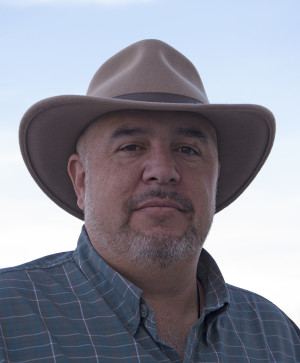by Martha Quillen
Do We Still Hold These Truths to Be Self Evident?
Remember that declaration about all men being equal and endowed with certain unalienable rights, among them life, liberty and the pursuit of happiness? And that concept of government of, by and for the people? Sometimes I wonder whether Americans still believe in those things.
After the fireworks on the Fourth of July, I wandered down to Salida’s Riverside Park and watched the kids dance. The band packed up, and everyone left, but I stayed and watched the river flow by, and thought about the friends I’d visited earlier that day. They used to be very active in their local party, but now they claim it’s better to avoid politics.
To me, that assumption seems sad and cynical. But they have a point. Political discourse has gotten so divisive and insulting, it may be more ethical to give it up – especially given the way we approach it. Citizens seldom discuss issues; instead, our political discourse tends to be about whether people are ignorant or stupid; tightwads or spendthrifts; science deniers or a danger to free enterprise and the American way.
Rather than discussing the pros and cons of a trade agreement or carbon reduction plan, citizens (including network news people) usually talk about what’s wrong with their opponents – a limitless topic to be sure, but hardly a productive one.
Yet we continue on. An article in the September 2015 Atlantic, however, questions how we carry on. Authors Greg Lukianoff and Jonathan Haidt reveal a new campus trend: lodging complaints about “microaggressions.” A typical microaggression occurs when a professor introduces an emotionally wrenching topic without forewarning sensitive students (in order to let students leave if they feel the need).
Lukianoff and Haidt call this “vindictive protectiveness” and contend it’s a threat to teachers and free speech, and may even contribute to the students’ emotional fragility.
“These same children grew up in a culture that was (and still is) becoming more politically polarized,” the authors contend. “Republicans and Democrats have never particularly liked each other, but survey data going back to the 1970s show that on average, their mutual dislike used to be surprisingly mild. Negative feelings have grown steadily stronger, however, particularly since the early 2000s. Political scientists call this process ‘affective partisan polarization,’ and it is a very serious problem for any democracy.”
So who knew? Oh, sure, we’ve all noticed that campaigns can be infuriating, but destructive to democracy?
Ahhhhh, America, what’s happening to us?
Back when Ed and I started Colorado Central, I assumed that America was getting better. In the two centuries since its founding, our nation embraced whole new categories of citizens, including women, Negroes, and Native Americans. The U.S. was apparently getting more inclusive and just, and in 2008, Barack Obama’s election seemed to prove it.
But do Americans actually regard one another as compatriots, kinsmen and equal partners in our “more perfect union?” In retrospect? No.
Since Obama’s election, it has become increasingly obvious that old divisions and prejudices persist, and that new ones are evolving – and growing.
In fact, in recent years, we seem more divided than ever. According to a 2014 Pew Research Study on Political Polarization in the American Public, Republicans and Democrats both show increasing ideological uniformity, meaning people from both parties share more down-the-line views on things as unpolitical as where to live and whom to choose as friends.
Also, according to Pew, 36 percent of Republicans and 27 percent of Democrats see members of the opposition party as “so misguided that they threaten the nation’s well-being.”
Pew also reports that such sentiments are “not shared by all – or even most – Americans. The majority do not have uniformly conservative or liberal views. Most do not see either party as a threat …. And more believe their representatives in government should meet halfway to resolve contentious disputes …”
But, “On measure after measure – whether primary voting, writing letters to officials, volunteering for or donating to a campaign – the most politically polarized are more actively involved in politics, amplifying the voices that are the least willing to see the parties meet each other halfway.”
Today, warring sides insist that they represent the truth, the light and the way, and that the other side is wrong, wrong, wrong. Yet clearly in terms of expanding opportunities and making education, health care and our courts more equitable, both liberal and conservative policies have fallen short.
For more than forty years, the gap between America’s rich and poor has been growing. This decline has persisted through the Ford, Carter, Reagan, GHW Bush, Clinton, GW Bush and Obama administrations. So who are we going to pick on next? Hillary? Bernie? Rand?
[InContentAdTwo]
Recently a lot of Americans have been cheering Donald Trump, who promises to bomb Iraq, put down Iran, erect a fence around Mexico, and make the Mexicans pay. Then he’s going to make us rich. Wow, America, here’s our man, a cartoon swashbuckler to lead us in our favorite pasttime: Putting the people we don’t like in their place.
Don’t you love it?
Probably not, and I’m with you on that, because the Donald is just another manifestation of our most persistent problem: When the going gets tough, we either blame or attack someone, which ignores a colossal truth: America isn’t failing. On the contrary, it is more inclusive, prosperous, powerful and influential than our founders could have ever imagined.
But success has drawbacks: it attracts attention, lures investors, builds expectations, changes your course, and gives people more options than they can wisely evaluate or handle. And that’s the way it is here at home, too.
Today, citizens approach political matters with an increased level of distrust, bias and hostility, which tends to erode manners and tolerance. To me, the most disturbing thing about modern polarization is what it’s done to my hometown. In Salida, city elections are considered nonpartisan, in that national parties are not represented. But that hasn’t stopped locals from dividing into opposing factions that regularly exchange insults and accusations.
Over what? Well, there are stereotypes galore; but reportedly our battles are between old-timers versus newcomers, young versus old, the needs of tourists versus the needs of residents, people who want to make a buck versus people who want to save a buck, the rich versus the poor, workers versus nabobs, and – according to both sides – good versus evil.
Surely governments are supposed to integrate the citizens and their needs. But we the citizens urge our governments to pick and choose between us, and then lobby, clamor and insult each other to get our way. Which is odd, because when I ask about specific proposals, especially here in Salida (such as whether people want an expanded outdoor water park with outdoor pools and slides), the majority on both sides seem undecided.
So as I see it, we are not fighting about issues. We are fighting about who gets to rule. And that, I think, is very sad, because the point of the American Revolution was probably not to replace King George as chief tyrant. But then again, how could we possibly let ordinary people determine their own thoughts, beliefs and desires?
Ah, freedom, it’s forever been an idea more popular on paper than in practice.
In case you couldn’t guess, Martha Quillen lives in Salida, where she finds considerate political discussion and a willingness to compromise in books and periodicals.


